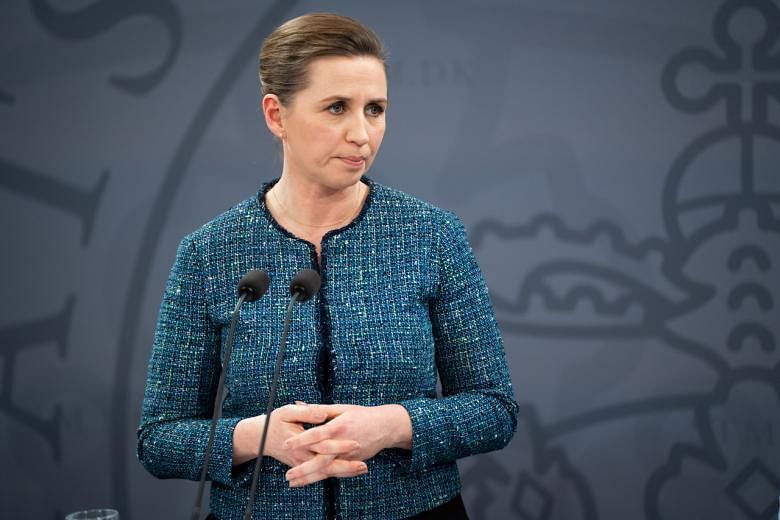COPENHAGEN (BLOOMBERG) - Denmark will hold a referendum on joining the European Union's defence pact as Russia's war against Ukraine looks to push the Nordic nation, which has often been sceptical about its EU membership, closer to the bloc.
The country, a founding member of the North Atlantic Treaty Organisation (Nato), will also boost military spending to meet the alliance's target of 2 per cent of gross domestic product, Prime Minister Mette Frederiksen said on Sunday (March 6) in Copenhagen as she presented a new defence deal with opposition leaders.
The Danish agreement adds to changes in long-standing security arrangements in the Nordic region since Russia's attack, with Sweden and Finland reassessing their military non-alignment after public support for Nato entry has surged in both countries. Other European nations are also overhauling their defences.
"Denmark belongs in the heart of Europe, without any reservations," Frederiksen said.
The country has since 1993 had an opt-out which excludes it from the EU's defence partnership. The 5.8-million-nation is also outside of the euro and the bloc's partnerships on justice and home affairs.
The referendum will be held on June 1. Denmark has twice previously held ballots to get rid of opt-outs - on the euro and on justice - but Danes rejected changes both times. A recent poll by TV2 showed 49 per cent of voters support joining the defence pact, with 27 per cent against. The next general election is due no later than June 2023.
Under the new deal, Denmark will gradually increase military spending from 1.3 per cent of GDP to reach the 2 per cent goal in 2033, which means annual spending on defence will be 18 billion kroner (S$2.5 billion) higher by then. The government also allocated an extra 7 billion kroner over the next two years for an immediate boost to the military, which will be financed by bringing the structural public deficit this year and next to its maximum level of 0.5 per cent of GDP.
To finance its long-term Nato commitment, triple A-rated Denmark will revamp the budget rules, raising the deficit limit to 1 per cent of GDP. The public debt to GDP ratio was expected to be 34.1 per cent in 2022, the finance ministry said in its latest forecast from December.
The country plans to accelerate its push toward independence from Russian gas supplies by looking into new exploration areas in the Baltic Sea and by speeding up the upcoming Baltic Pipe gas pipeline.
When asked if wind farm developer Orsted, in which Denmark holds a majority stake, should terminate gas contracts with Russia's Gazprom, Frederiksen said it is not recommendable for each country to have individual sanctions.

